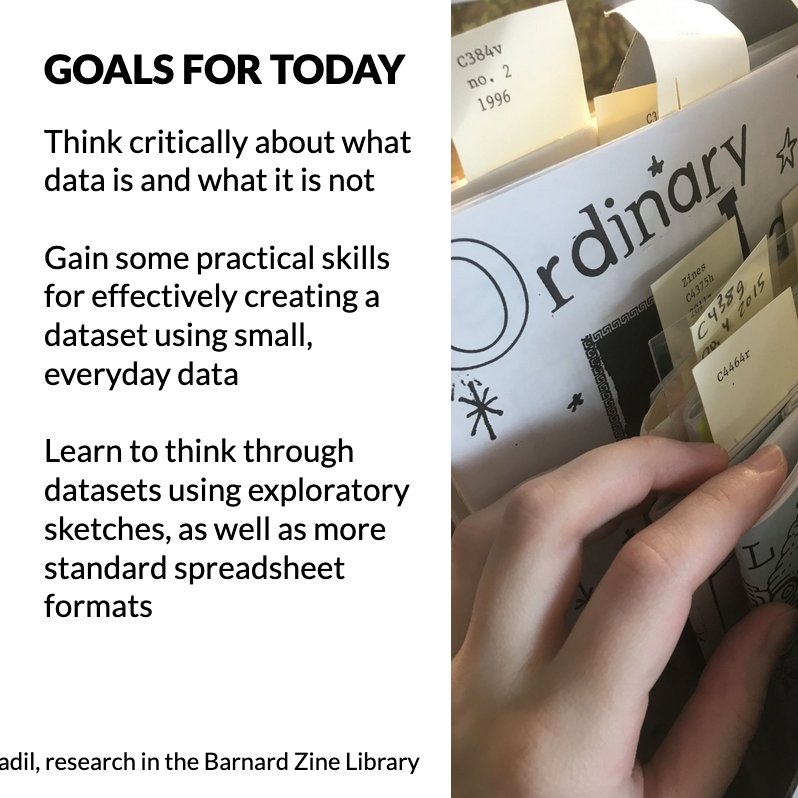For our beginner-friendly “data gathering” session, we had over 30 attendants come together in a hands-on workshop to reflect on how we might gather and curate datasets from our own lives. We worked through practical, hands-on approaches to conceptualizing and building a dataset, starting with “small data.” To my delight, this workshop attracted a mix of folks who are new to working with data and those who were interested in thinking about data from a affective/analog critical perspective.
In discussing the nature of data as something small and affective, rather than big and distant, we drew on the thinking of designers, visualizationists, and scholars including Giorgia Lupi, Kate McLean, Catherine D’Ignazio + Lauren Klein, and others. We discussed the scholarship and data-driven projects of these thinkers in order to reflect on what data is and how datasets and visualizations can reflect our relationship to it.
Finally, we worked through a step-by-step exercise that I designed to help us turn events in our everyday lives into a small structured dataset. We began by choosing a category (media consumption, daily movement, or communication) and making a simple list of data points from our lives in the past week. Then, we annotated each datapoint with descriptions to get a sense of what meaningful fields or headers about our data we might include.
Each participant left the workshop with a simple table of 5-10 data points and 2-5 fields describing each data point. The process of building these tiny datasets through a process of analog curation gave us all a new perspective on what it means for something to “count” as data!
You can view the full recording of the workshop here.
Label

Publish Date